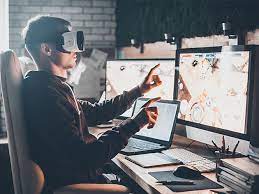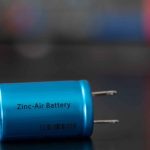A Leap in Typing Technology
In a remarkable demonstration of cutting-edge technology, Mark Zuckerberg recently introduced a revolutionary “virtual keyboard.” During this demonstration, Andrew Bosworth showcased an astonishing typing speed of 119 words per minute. This innovation could potentially represent a significant development in the world of Meta Reality Labs and its pursuit of advanced VR and AR technologies.
Meta Reality Labs and the Pursuit of Innovation
Meta Reality Labs, known for its ambitious ventures into VR and AR, continually explores new hardware prototypes and alpha software. While some of these projects may never see the light of day, the virtual keyboard demonstrated by Zuckerberg hints at a promising future for Meta.
A Virtual Typing Experience
Mark Zuckerberg shared this captivating demo on Instagram, where he presented a typing race that reimagines traditional keyboards. The race relies on computer vision and MR (Mixed Reality) to eliminate the need for physical keyboards, offering a fully immersive and virtual typing experience.

The Setup and Impressive Typing Speeds
The setup involves a sizable QR code affixed to a table. Participants rest their hands on the table and mimic the motions of typing on a physical keyboard, while a screen lens captures their actions, translating them into swiftly appearing text. During the demonstration, Zuckerberg himself achieved a typing speed of 100 words per minute, an impressive feat. However, it was Andrew Bosworth who emerged as the champion, typing at an astonishing rate of nearly 120 words per minute.
The Remarkable Feat and Potential Impact
Bosworth, with a typing speed of 119 words per minute and an impressive 98.9% accuracy rate, highlighted the incredible potential of this innovation. He mentioned that overcoming psychological barriers played a crucial role in reaching this extraordinary typing speed.
Challenges and Future Prospects
Breaking the 119 words per minute barrier on a virtual keyboard is a remarkable achievement. Meta recently introduced a sliding keyboard for Quest users, which functions well with controllers. However, it encounters accuracy issues when hands move too swiftly.
As of now, there is no official information regarding when or if this MR keyboard demonstration will evolve into a consumer product. Notably, the demonstration employed a Quest 2 headset, and a tether was visible, indicating the need for a computer connection.
Before bringing this MR keyboard to the Quest platform, Meta may need to adapt the technology for native usage. It remains uncertain whether the Quest 2’s XR2 chip can handle such speeds. It’s possible that the Quest Pro XR2+ or the upcoming Quest 3 may be better equipped to meet this challenge.
In conclusion, Mark Zuckerberg’s unveiling of the virtual keyboard, coupled with Andrew Bosworth’s remarkable typing performance, showcases the exciting possibilities within Meta Reality Labs. While the path to consumer availability remains uncertain, the future appears promising for this innovative technology.
For more information read this article: https://www.uploadvr.com/meta-research-any-flat-surface-virtual-keyboard/
Read our previous articles: Utilizing 239 Million-Year-Old Fossils to Enhance the Search for Martian Aliens
https://scitechupdate.com/index.php/android-14-satellite-sms-for-everyone/
https://scitechupdate.com/index.php/chemistry-entrepreneurship/
https://scitechupdate.com/index.php/waste-paper-to-battery-components-for-smarts-phones-vehicles/https://scitechupdate.com/index.php/ai-demonstrated-95-accuracy-in-listening-typing-and-data-processing/
https://scitechupdate.com/index.php/top-7-technology-trends-of-2023-from-ai-to-5d-technology/

